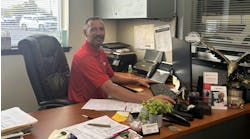As a manager, it might be counterintuitive to let employees fail at times, but it’s through these failures that employees become stronger, says Charlie Fewell, who discussed “Understanding Workplace Conflict” Friday at the Congress of Automotive Repair & Service (CARS) show.
“The way we learn is through failure,” says Fewell, president of Charlie Fewell & Associates. “Those coaches who allow players to fail develop a better long-term player.”
Fewell used sports analogies in his discussion, such as, “Coaches never play a position in the game.” He adds that coaches never go out into the field, only when they’re practicing.
Strong teams have a high level of trust and communication fosters this trust, says Fewell. Strong teams also manage conflict and are accountable, he adds.
He advises managers to figure out a way to measure progress and to regularly focus on results, measure what’s wrong and reward progress.
In order to address and solve workplace conflict, the journey begins with asking questions and focusing on the problem, Fewell says.
There are two types of conflicts, he continues: destructive conflict, which escalates to the point that the parties involved forget the issues and focus purely on retaliation; and constructive conflict, which focuses on the situation and issues. Those who engage in constructive conflict are flexible and willing to find a mutually acceptable outcome, he says.
He also pinpoints various types of motivation, such as spiritual, physical, emotional, professional, financial, relationships and intellectual.



